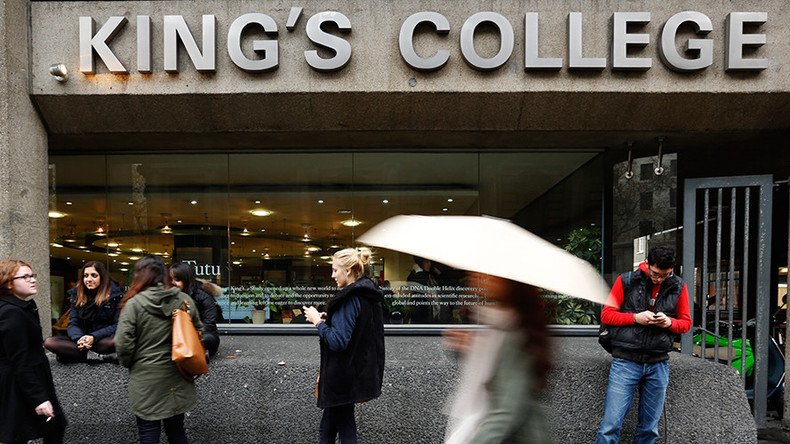Top UK university plans to open German campus post-Brexit

A leading British university is considering a new campus in Germany as response to Brexit
King’s College London (KCL) may be the first British university to open a campus in Europe as a result of the UK’s withdrawal from the European Union.
Fears of a post-Brexit fall in staff and student numbers as well as the loss of revenue from EU students were cited as the key drivers behind the decision.
The new KCL campus will be located in Dresden, a city in eastern Germany and the center of ‘Silicon Saxony’, an association of over 300 universities, academic think-tanks and commercial enterprises.
A spokesperson for the university confirmed that the decision is in its early planning phase and emphasized that KCL values its close relationship with the German academic community, “which demonstrate the success of cross-national and institutional links.”
King’s already enjoys close links with the Technical University of Dresden and their prolonged cooperation was recently cemented by the transCampus initiative, which enables the exchange of personnel, resources and knowledge between the two universities.
Speaking to CNN, Vice Chancellor of TU Dresden Hans Muller-Steinhagen said he welcomed KCL’s decision to open a German campus.
“The plan is at an extremely early stage, but there is significant interest from the senior university management at both King's and TU.
As Brexit approaches an "offshore King's College Europe" could be on the cards! https://t.co/TJepNgqc33
— King's NMS (@KingsNMS) July 7, 2017
“When you have highly-qualified people on both sides, and they work together, the results are much more successful. We want to see more cooperation not competition.
“We are not prepared to let our strong cooperative links with UK universities suffer from these political decisions,” he added.
Muller-Steinhagen also said that he expects other UK universities to open new satellite campuses “all over Europe” to preserve the existing academic links with their EU counterparts and avoid dramatic decreases in the number of European students and staff.
In March, numerous academics at the University of Oxford cautioned the British government that European academics may be leaving the UK en masse if no deal is reached on the rights of the EU citizens post-Brexit.
The UK’s decision to leave the European Union has already had a negative impact on the number of EU students applying to the UK.
In December, the University of Cambridge announced that the number of applications from EU nationals fell by almost 15 percent.
“We are concerned about the prospect of a ‘cliff edge’ for universities in which regulatory and visa changes have a sudden and damaging impact,” a statement by the University said.














